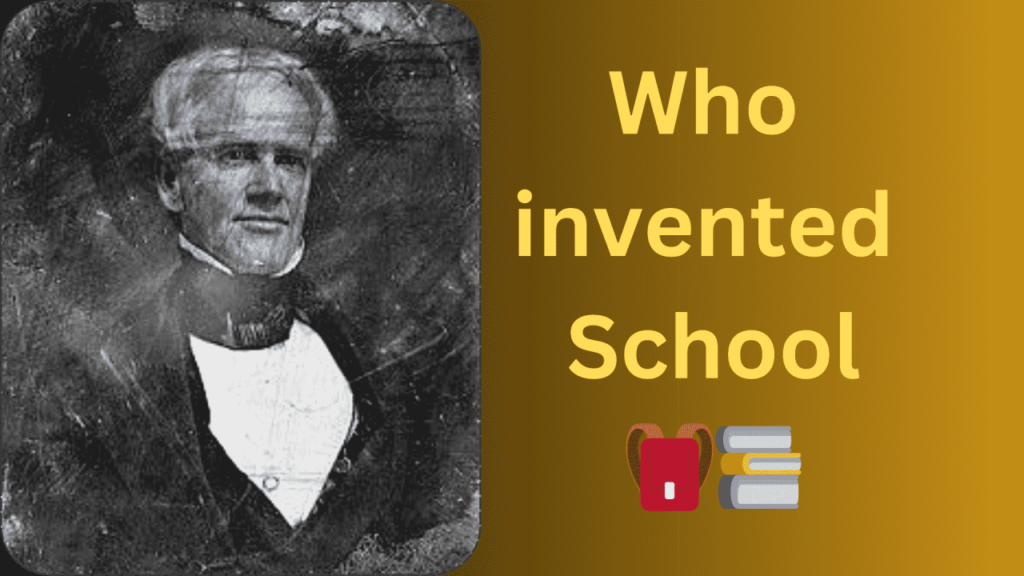Who Invented School? The History and Evolution of Education
The concept of formal education has been around for centuries, with various civilizations developing their own systems of teaching and learning. However, the modern school system as we know it today can be traced back to specific individuals and events throughout history. In this comprehensive article, we will explore the origins of school, the key figures who shaped its development, and the evolution of education over time.
Johann Heinrich Pestalozzi (1746-1827)
Johann Heinrich Pestalozzi, a Swiss educator, is often considered the father of modern elementary education. He believed in a child-centered approach to learning, emphasizing the importance of hands-on experiences and the development of the whole child.Pestalozzi’s ideas influenced many other educators, including Friedrich Fröbel, who founded the first kindergarten in 1837.
Horace Mann (1796-1859)
Horace Mann, an American education reformer, is often referred to as the “Father of the Common School.” He played a key role in establishing the first state-funded public school system in Massachusetts in the 1830s and 1840s.Mann believed that education should be free, compulsory, and accessible to all children, regardless of their social class or background. He also advocated for the standardization of curriculum and the training of teachers.
John Dewey (1859-1952)
John Dewey, an American philosopher and educator, is considered one of the most influential figures in the history of education. He developed the theory of progressive education, which emphasized the importance of hands-on learning, problem-solving, and the connection between education and real-world experiences.Dewey’s ideas had a significant impact on the development of the modern school system, particularly in the United States.
The 20th century saw significant changes and advancements in education, driven by technological innovations, social movements, and changing educational philosophies.
The Rise of Standardized Testing
The early 20th century saw the introduction of standardized testing, which was used to measure student achievement and compare schools and districts. The development of intelligence tests, such as the Stanford-Binet Intelligence Scale, also led to the identification and labeling of students based on their perceived abilities.
The Civil Rights Movement and Educational Equity
The Civil Rights Movement of the 1950s and 1960s brought attention to issues of educational equity and access. The landmark Supreme Court case Brown v. Board of Education (1954) declared that segregated schools were unconstitutional, leading to the desegregation of schools across the United States.The passage of the Elementary and Secondary Education Act (ESEA) in 1965 also provided federal funding for education, with a focus on supporting disadvantaged students and promoting educational equity.
The Rise of Technology in Education
The late 20th century saw the rapid development of technology, which had a significant impact on education. The introduction of personal computers, the internet, and educational software transformed the way students learn and teachers teach.The 21st century has seen the continued integration of technology in education, with the widespread use of digital devices, online learning platforms, and educational apps.
As we move into the 21st century, education is facing new challenges and opportunities. The COVID-19 pandemic has accelerated the shift towards online and distance learning, highlighting the need for more flexible and adaptable educational systems.Emerging technologies, such as artificial intelligence, virtual reality, and robotics, are also expected to have a significant impact on education in the coming years. These technologies have the potential to personalize learning, enhance collaboration, and prepare students for the jobs of the future.However, the future of education also raises concerns about equity and access. As technology becomes increasingly integrated into education, there is a risk of widening the digital divide and excluding students from disadvantaged backgrounds.
Q: Who invented school?
A: There is no single individual who invented school. The concept of formal education has evolved over centuries, with various civilizations and individuals contributing to its development. However, some key figures who played a significant role in shaping the modern school system include Johann Heinrich Pestalozzi, Horace Mann, and John Dewey.
A: The earliest forms of education can be traced back to ancient civilizations such as Mesopotamia, Egypt, China, and India. However, the modern school system as we know it today began to take shape in the 18th and 19th centuries, with the work of educators like Johann Heinrich Pestalozzi, Horace Mann, and John Dewey.
A: The primary purpose of school is to provide education and learning opportunities to children and young adults. Schools aim to impart knowledge, develop skills, and foster personal growth and development. They also serve as a place for socialization, where students can interact with their peers and learn important social and emotional skills.
A: Education has evolved significantly over time, driven by technological innovations, social movements, and changing educational philosophies. Some key developments include the rise of standardized testing, the Civil Rights Movement and the push for educational equity, and the integration of technology in the classroom.
A: Some of the key challenges facing education today include:
- Ensuring equity and access to quality education for all students, regardless of their background or socioeconomic status.
- Adapting to the changing needs of the job market and preparing students for the jobs of the future.
- Integrating technology effectively into the classroom while addressing issues of digital equity.
- Addressing the mental health and well-being of students, especially in the wake of the COVID-19 pandemic.
- Providing ongoing professional development and support for teachers.
Table of Information
| Characteristic | Description |
|---|---|
| Origins of School | The earliest forms of education can be found in ancient civilizations such as Mesopotamia, Egypt, China, and India. |
| Ancient Greece | Philosophers like Socrates, Plato, and Aristotle developed new approaches to education, emphasizing critical thinking and the pursuit of knowledge. |
| Middle Ages in Europe | Education was largely controlled by the Catholic Church, with monasteries and cathedral schools serving as the primary educational institutions. |
| Renaissance Period | Scholars like Erasmus and Montaigne advocated for more practical and individualized approaches to education. |
| Reformation | Martin Luther’s Reformation led to an increased emphasis on literacy and the establishment of schools in Protestant regions. |
| Johann Heinrich Pestalozzi | Considered the father of modern elementary education, he believed in a child-centered approach to learning. |
| Horace Mann | Referred to as the “Father of the Common School,” he played a key role in establishing the first state-funded public school system in Massachusetts. |
| John Dewey | Developed the theory of progressive education, emphasizing hands-on learning and the connection between education and real-world experiences. |
| Standardized Testing | The early 20th century saw the introduction of standardized testing to measure student achievement and compare schools and districts. |
| Civil Rights Movement | Brought attention to issues of educational equity and access, leading to the desegregation of schools and the passage of the Elementary and Secondary Education Act (ESEA). |
| Technology in Education | The late 20th century saw the rapid development of technology, transforming the way students learn and teachers teach. |
| Future of Education | Emerging technologies, such as artificial intelligence and virtual reality, have the potential to personalize learning and prepare students for the jobs of the future, but also raise concerns about equity and access. |
Additional Resource
This comprehensive article explores the history and evolution of education, from its origins in ancient civilizations to the modern school system. It highlights key figures and events that shaped the development of education over time, and discusses the challenges and opportunities facing education in the 21st century.



